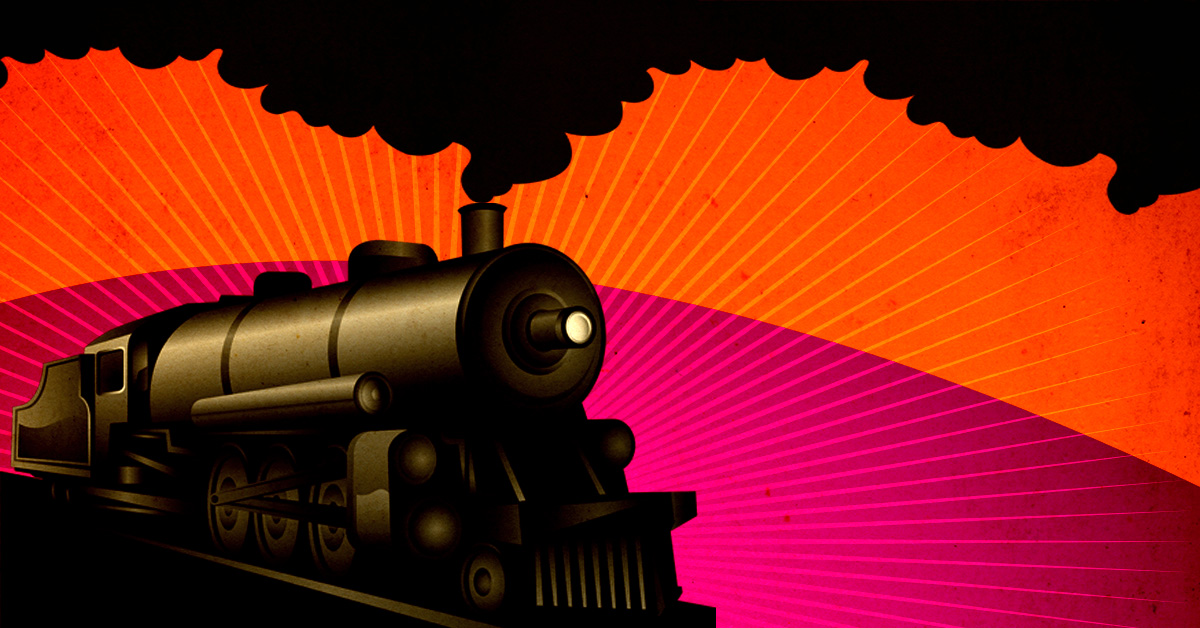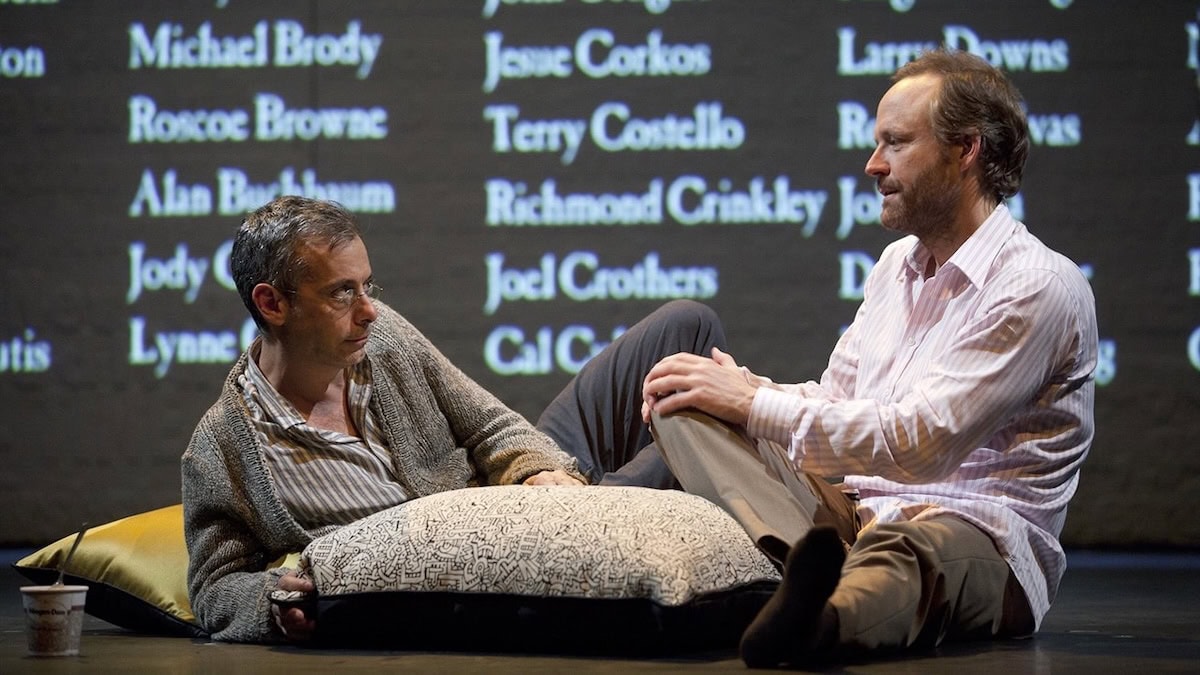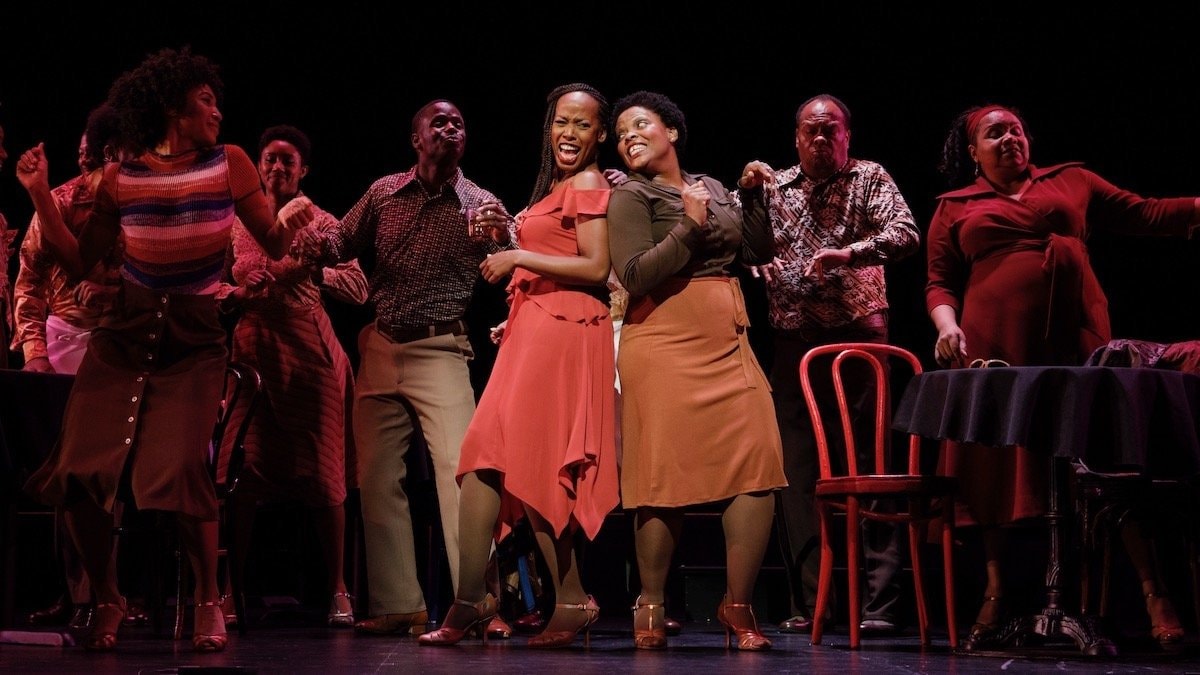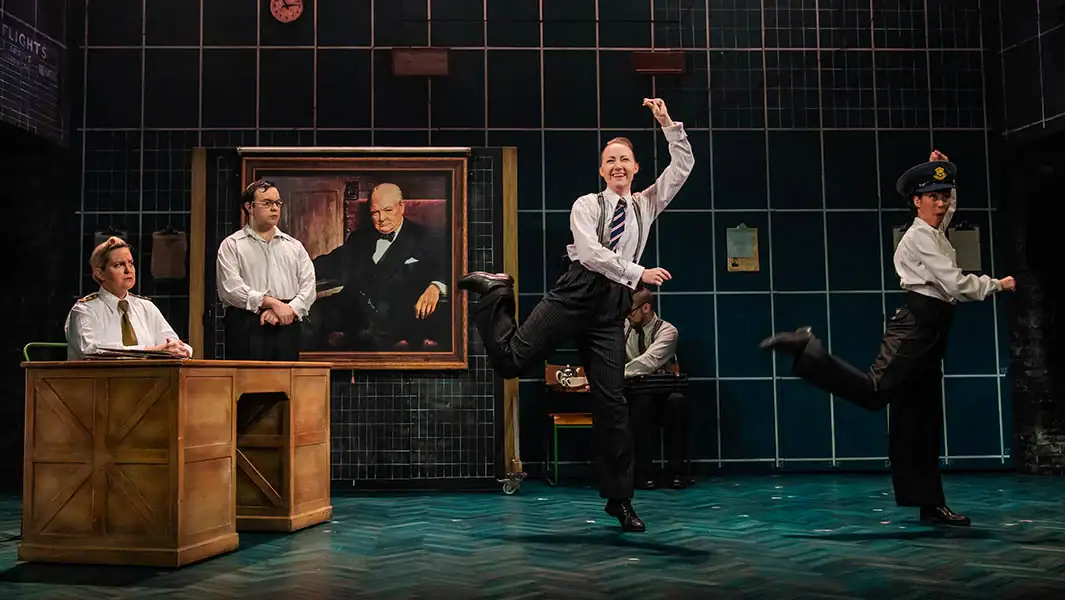
The Ghost Train (Revised) (UK) is a new version of Arnold Ridley’s genre-defining The Ghost Train (US) by Jocelyn and Nicolas Ridley. Written in 1923, the play enjoyed an unprecedented, sold-out West End run from November 1925 to March 1927. We celebrate the show’s 100th anniversary by sharing this excerpt from Nicholas Ridley’s book — Godfrey’s Ghost: From Father to Son — exploring the history of this classic comedy-thriller.
My father’s autobiography opens in the circle bar of the St Martin’s Theatre, London, on 23rd November 1925. It is the interval between the first and second acts of a new play. The first act has not gone well and a young man – the play’s author – is drinking brandy in the hope that it will restore him sufficiently to return to his box in the auditorium. The bar bell rings and the audience resume their seats. Two gentlemen – both well-known theatre impresarios — remain in the bar. In the sudden silence, the young man clearly overhears their conversation. “You mark my words,” says the first, “this thing will finish on Saturday.” “I expect you’re right,” says the second. They drain their glasses and the playwright is left alone with the dregs of his brandy and his hopes. The young man was my father; the play that was certain to close on Saturday was The Ghost Train.
The story of how The Ghost Train came to be written and staged has almost as many twists and turns as the play itself. It begins at the end of the First World War when my father was a member of the Birmingham Repertory Company. He wrote: “I was courting a girl in Bath and, when I could scrape up the train fare, I used to go down to see her, travelling by a night train on Saturday and returning from Bath at crack of dawn on Monday in time for rehearsal. Leaving New Street by a 2.30am train, I was obliged to change at Mangotsfield Junction – a few miles short of Bristol – at around 4am and there wait for a local Bristol train which arrived at 6.30am to take me on to Bath. Mangotsfield Junction was just about as lonely and gloomy a dump as one could possibly imagine. There were no nearby houses, the platforms were long and the only shelter was a kind of combined waiting room and ticket office with paper peeling from the damp walls, out-of-date posters and a fireplace containing the ashes of a long-extinguished fire. There was rarely a member of staff on duty and, more often than not, I was the only passenger condemned to wait two and a half hours for the Bath connection. It could be cold, very dismal and just a bit eerie. If I managed to doze off on one of the backless benches, I was usually awakened by some freight train chug-chugging through or by a Bristol-Birmingham express rip-roaring by with a flash of lights and scream of whistle.”
After leaving Birmingham, my father’s acting career suffered a series of cruel setbacks and disappointments. This meant that he was forced to abandon his theatrical ambitions, and for four years he worked in his father’s shop selling boots and shoes. But the theatre was still in his blood, and he began writing plays in an unfurnished room above the shop: “There was a broken window, covered with cardboard, and plaster was falling from the walls and ceiling. A large packing-case was my desk and a smaller one served as a seat. Lighting and heating were supplied by an oil-lamp and oil-stove.” My father was “pretty prolific at the time” and he bombarded London agents with his plays, most of which remained unread.
And then his luck appeared to change. A well-known actor-manager, to whom my father had sent a play, wrote offering to take it out on tour. My father travelled to London and presented himself at the actor-manager’s flat. There he learnt that circumstances had changed and the offer had been withdrawn. “This was a terrible blow. That evening I decided to see a play in the West End. I didn’t like the thriller I saw at all. The characters seemed unreal, the situations largely impossible and the denouement unconvincing. ‘All right!’ I thought. ‘I’ll write a thriller myself — only I’d like my characters to be real people and the setting to be somewhere familiar.’ It was then that those hours spent on Mangotsfield Junction came back to me. Passengers stranded on a lonely railways station. Station haunted by the shades of passengers killed in a smash. Why not the ghost of the train itself? Why not indeed!”
There were many more changes of fortune before – finally – The Ghost Train opened at the St Martin’s Theatre and then transferred to the Garrick where it enjoyed the longest West End run of the era. By the autumn, provincial and international tours were on the road and a contract had been signed for the first of three films versions of the play. As my father wrote: “The train had puffed itself successfully out of the dark tunnel” and established itself as the classic comedy-thriller it has remained ever since.
— Adapted from Godfrey’s Ghost: From Father to Son by Nicolas Ridley
Published by Mogzilla ISBN 978-1-906132-98-9
Header Image: An Artwork of The Ghost Train (Revised) (Sam Charrington)
Explore The Ghost Train and more plays written by Arnold Ridley by visiting Concord Theatricals in the US or UK.

The Truth Behind… The Normal Heart

Musical Revues

